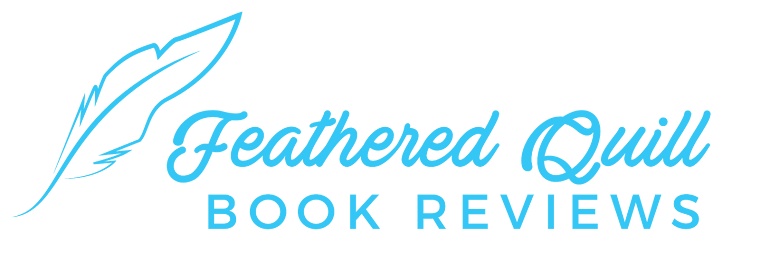Today, Feathered Quill reviewer Amy Lignor is talking with Harvey B. Chess, the author of Functional and Funded: Securing Your Nonprofit's Assets From The Inside Out
FQ: Mr. Chess, I have to say I learned a great deal from your book. Could you speak a bit about how this revised edition evolved from the first?
CHESS: I’ll level with you by admitting that learning about how to get my book published has involved being so eager to get something available that I have, in effect, self-published previous versions - only to realize that they were not truly what I had in mind. So, the book you so kindly reviewed is at long last what I wanted readers to see and this includes providing an index so readers can poke around selectively.
FQ: Along those same lines, is the digital/online world transforming the industry in ways that make it more or less difficult for a charity to raise money?
CHESS: Who’s to say? What I know is that the community-based organizations to which my book is dedicated operate best when taking a multi-faceted approach to securing assets to stay the course. This inescapably involves entering the electronic realm, but not as a be all and end all.
FQ: I read that you gave highly regarded funding proposal development workshops across the globe. Could you tell us about them? Could you speak about any differences that stand out to you when it comes to proposal/grant writing between America and other countries; how the systems differ, or the ease and difficulty levels based on location?

CHESS: I did make mention of workshops from tiny Westport, CA – my former hometown - to Uppsala, Sweden, the latter location being the sole instance of my globetrotting as a workshop trainer.
As for any differences in the matter of writing grant proposals, this was not a point of concern for me as a trainer. My message for people doing such work was steadfast throughout. At its core, the message is that one can make much more out of building a funding proposal by using the process to look inward to strengthen the organization as well. At their simplest the take-aways are: Strong Proposal Outside: Strong Organization Inside.
As for the trainings themselves, a former participant put it well; “I have witnessed you in action. Your legacy is in hundreds of grassroots organizations' volunteers and staffers who learned and turned around and taught others. I saw them grow in skill, confidence and capacity. Because of a few hours with you, your frankness and compassion and commitment.”
FQ: Do you receive a lot of email questions from readers or industry people who wish to learn even more about the proposal writing process? Do you respond personally, or is there a FAQ page on your website where people can learn even more?
CHESS: When I was active as a trainer among nonprofits such email back and forths took place often.. As for now, your question serves well to focus my attention on what my website, soon to be upgraded, will allow. I am always happy to respond personally when people reach out. Hadn’t thought of FAQs, thanks for that.
FQ: Because your wealth of experience is immense, would you share with us a story of one of the most difficult moments you faced with an organization since you “stumbled into the nonprofit sector in 1965”?
CHESS: I stumbled in because a recruiter for the Federal Office of Economic Opportunity (OEO), The Flagship of LBJ’s Great Society Program, told me the organization was going to eliminate poverty in our midst. The idealist in me at the time resonated with such an assertion.
My next job, after I opted out of the opportunity to remain with that Federal Agency, was with an urban YMCA. The new director was committed to changing the organization’s longstanding history as a recreational gathering place for a comfortable middle class to a credible community resource for a neighborhood the economic make-up of which had changed significantly downward.
My job, as part of this effort, was to reach into that neighborhood and try to get a local community center up and running. I was amenable to such a notion on the heels of having been instrumental in getting similar organizations up and running when working at OEO where we used federal grants to lubricate the process.
Different story here. No start-up funding as such, just a measure of good will and undoubtedly a quixotic sense of righteousness. In the absence of experience. inherent credibility and living in that very community, my efforts at organizing largely failed. My take-away was a visceral learning of what my book includes as the iron rule from the Industrial Areas Foundation: “never do for others what they can do for themselves.”
FQ: You keep things very real, so to speak, in this book. Have you always enjoyed being a part of helping a nonprofit stand out from the crowd, and helping them confront and overcome the challenges they face in such a highly competitive world?
CHESS: Yes indeed. I internalized respect for the value of what people can accomplish in service to others through nonprofit organizations years ago, so working in the sector has been a natural for me, so to say. My work, and now my writing, concentrate on helping nonprofits overcome resource development and sustainability challenges, mindful of the prospect of distinguishing themselves as substantial, enterprising and resilient. The difficult times we confront in many communities along with the competition for resources call for nothing less.
FQ: What is your core hope when it comes to teaching this knowledge? Do you feel that there will be longer sustainability for nonprofits if they learn and utilize the data in this book?
CHESS: Since I don’t easily embrace the notion of hope, let me suggest that my core conviction is that people in nonprofits will be able to use my book to always contemplate and reaffirm why they are doing what they do to pursue organizational mission, to secure the assets needed to do this more effectively, and to sustain their efforts until the mission is accomplished.
FQ: Before we go, would you share with us what you are currently working on, whether it be a book, traveling, etc.? And, could I also inquire as to whether you wish to write a work of fiction in the future? That would also be something we’d love to keep an eye out for.
CHESS: At my age, I’m working on staying well, one day at a time, and sharing my life with my long-time partner in our neck of the Northern California woods – and enjoying both thoroughly. As for your query about fiction, maybe the worm will turn. This’ll call for getting the words and thoughts out of my head, no small matter when reflecting on the humbling learning process as a self-published writer so far. I’ll need to get back to the creative writing class I bailed on so I could finish getting Functional and Funded out and about, and in your hands for the review for which I thank you.


No comments:
Post a Comment